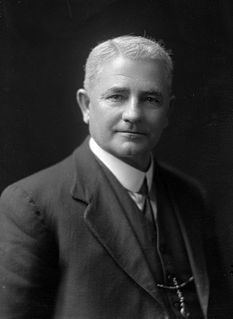
Sir Sidney George Holland was a New Zealand politician who served as the 25th Prime Minister of New Zealand from 13 December 1949 to 20 September 1957. He was instrumental in the creation and consolidation of the New Zealand National Party, which was to dominate New Zealand politics for much of the second half of the 20th century.
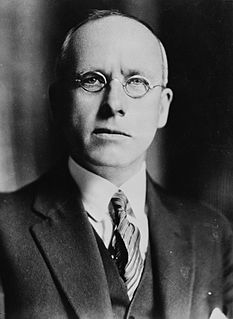
Peter Fraser was a New Zealand politician who served as the 24th Prime Minister of New Zealand from 27 March 1940 until 13 December 1949. Considered a major figure in the history of the New Zealand Labour Party, he was in office longer than any other Labour prime minister, and is to date New Zealand's fourth-longest-serving head of government.
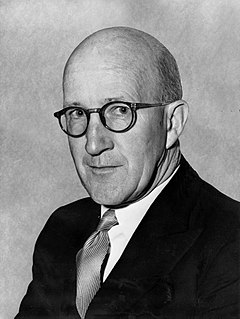
Sir Arnold Henry Nordmeyer, born Heinrich Arnold Nordmeyer, was a New Zealand politician. He served as Minister of Finance (1957–1960) and later as Leader of the Labour Party and Leader of the Opposition (1963–1965).

Joseph Gordon Coates served as the 21st Prime Minister of New Zealand from 1925 to 1928. He was the third successive Reform prime minister since 1912.

John Alfred Alexander Lee was a New Zealand politician and writer. He is one of the more prominent avowed socialists in New Zealand's political history.

Adam Hamilton was a New Zealand politician. He was the first non-interim Leader of the National Party during its early years in Opposition.
Sir Leslie Knox Munro was a New Zealand lawyer, journalist, and politician of international standing.

Frank Langstone was a New Zealand Member of Parliament, Cabinet Minister and High Commissioner to Canada.

Sir Thomas Lachlan Macdonald was a New Zealand politician of the National Party. He served in both World Wars. He was a High Commissioner to the United Kingdom.
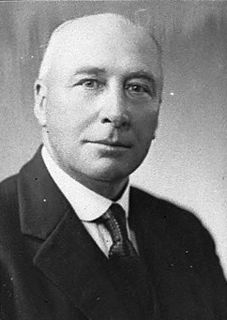
William Edward Parry was a New Zealand Minister and trade unionist.

David Wilson was a New Zealand politician of the Labour Party. He was a minister in the First Labour Government.

James Thorn was a New Zealand politician and trade unionist. He was an organiser and candidate for the Independent Political Labour League, Social Democratic Party then the Labour Party.

Henry Leonard James May was a New Zealand politician of the Labour Party. He was a cabinet minister from 1972 to 1975.

Edward Luttrell Cullen was a New Zealand politician of the Labour Party, and a cabinet minister in the First Labour Government.

Sir Ernest Hyam Davis was a New Zealand businessman, and was Mayor of Auckland City from 1935 to 1941. He was also on other Auckland local bodies and on various philanthropic and sporting organisations. He was Mayor of Newmarket 1909–1910.

The 26th New Zealand Parliament was a term of the New Zealand Parliament. It was elected at the 1938 general election in October of that year.

Thomas Brindle was a British-born early activist for the New Zealand Labour Party who was jailed during World War I for speaking out against conscription. He was a member of Wellington City Council and stood for election to the House of Representatives five times. He was a member of the Legislative Council from 1936 until March 1950.
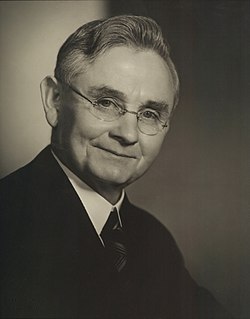
The New Zealand Labour Party leadership election, 1933 was held on 12 October 1933 to choose the third leader of the New Zealand Labour Party. The election was won by Auckland West MP and incumbent deputy-leader Michael Joseph Savage.

The Lee Affair was an event that transpired in the late 1930s in New Zealand revolving around Labour Party MP John A. Lee's repeated vocal, public critiquing of his party's leadership. The affair culminated with Lee's expulsion from the Labour Party who then formed his own Democratic Labour Party causing a sizeable rift in party membership.



